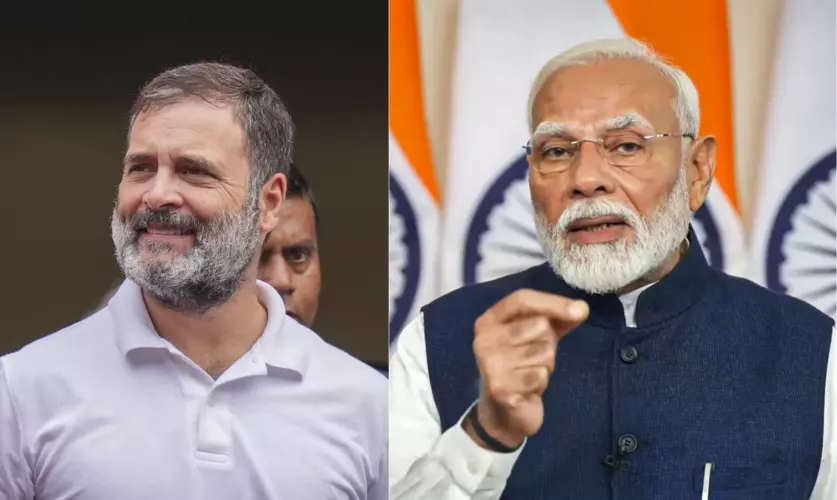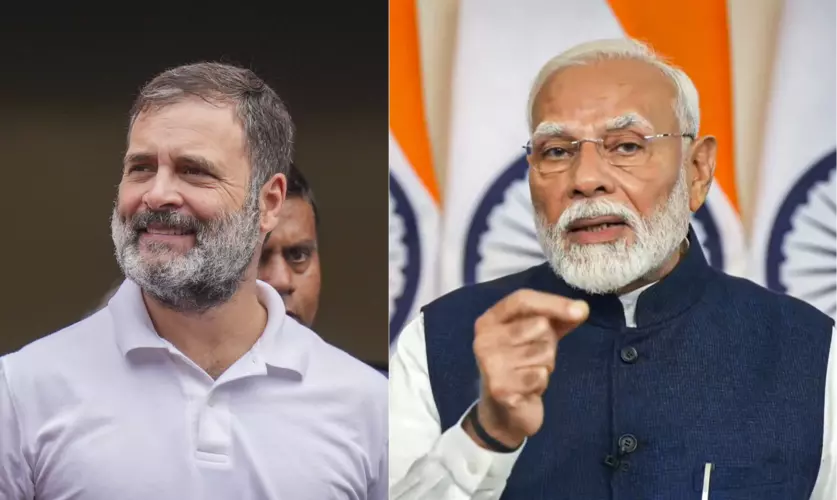
The election of more representatives from communities that have been historically discriminated against by the upper caste elite does not necessarily change the prospects of all individuals from the Sche-duled Castes, Scheduled Tribes or Other Backward Classes. A regular audit of how all the rest are doing from time to time is necessary for equity, equality and justice.
This is the nuts and bolts of the pressure on the Narendra Modi government to get the long-postponed census of India’s population done with an add-on census of castes, because the nation needs to know who is better off and who has remained worse off, despite reservations and the quota system for admission into educational institutions and government jobs.
Having campaigned in 2014 that he was a representative of OBCs and was therefore looked down upon by the upper caste- led Congress, Mr Modi should want to know how the rest of his brethren have fared during his 10 years and three months in power. It is a matter of conjecture that as a result all OBCs are therefore doing better in the race to catch up with the upper castes. It is equally pertinent to point out that not all Yadavs or Mauryas or Marathas or members of the Soren community are as powerful, well connected and privileged as some families within these castes and tribal groups.
The Modi government has not announced a date for the start of the national census. Nor has it committed to the caste census demanded not just by the Congress and its partners in the Opposition INDIA bloc, but by coalition partners of the BJP — Nitish Kumar of the Janata Dal (United), Chirag Paswan of the Lok Janashakti Party and N. Chandrababu Nai-du of the Telugu Desam Party. The longer Mr Modi puts off announcing the start of the census-caste census, his resistance will become more indefensible, politically problematic and frankly absurd.
That is not to argue that the Congress with Rahul Gandhi leading the charge on the demand for raising the ceiling for reservation or quotas for SCs, STs and OBCs is entirely coherent either. He is not. He, on behalf of the Congress, and several BJP partners, have demanded the inclusion of Muslim Dalit and OBC sub-castes in the proposed revision. On the details, Rahul Gandhi has been uninspiringly vague.
Getting Mr Modi to backtrack and admit to a mistake on lateral entry to mid-level and top-level jobs in the Central government’s bureaucracy that did not specify how many of the 45 jobs on offer were reserved under the quota system was a big political gain. Instead of picking up momentum by unveiling plans for how more opportunities would be created to level the very tilted playing field, Rahul Gandhi ad-libbed: “We will conduct a caste census and the 50 per cent cap on reservations, which I don’t accept, will be removed… First, we should have the data before us regarding the participation of different castes in various institutions… Talks of reservation are always held but they never get a chance.”
He seemed not to understand that he too was only talking and by doing so losing the chance to amplify how to change a system that has created a privileged few, leaving behind the underprivileged many. It does not take meticulous research to understand this part of the Indian reality.
For India’s political leadership, the toughest question is how to begin altering embedded caste inequality. The judiciary’s prescription of identifying the most underprivileged from within the categorisation of underprivileged through the listing of SCs, STs and OBCs has been rejected by Dalit organisations, accusing the remedy of artificially creating a creamy layer, when the issue is historic discrimination and ridding India of this malaise.
Neither the Congress, its INDIA bloc partners individually or collectively nor the partners of the National Democratic Al-liance and the BJP have answers. Each side is poised to take the plunge but afraid to do so, like two teams of kabaddi players unwilling to start the game. The reluctance is understandable for many reasons, including the short term one of the political cost of failing to satisfy the overwhelming majority of Indian voters, both the socially underprivileged and the upper castes.
The BJP’s response to Rahul Gandhi’s meaningless observation on a caste census was to rake up his caste identity and accuse the Congress of working to divide the country. The latest salvo by Tokhan Sahu, Union minister from Chhattisgarh, about the Congress and Rahul Gandhi is revealing: “Now they are conspiring to divide the country in the name of caste census. Those who raise the de-mand… should tell which caste they belong to.”
And then there is bad luck. The toppling of the newly-built Shivaji statue in Rajkot on the eve of the politically crucial Maha-rashtra elections is a misfortune and blunder rolled into one. With a high-pitched ongoing agitation for Maratha reservations that complicates the caste equations which the Mahayuti alliance needs to get right, the broken idol of its icon is a reminder of how the BJP toppled the MVA government. To assuage wounded Maratha sentiments, already divided between the loyalists of Ajit Pawar, Sharad Pawar and Uddhav Thackeray, Mr Modi rushed in to publicly apologise, describe Shivaji as a deity, worshipped by all.
Policy-making and foolproof implementation to dismantle the entrenched upper caste with access to status, power and networks of privilege that are exclusive to them by levelling the field for Dalits, SCs, STs and OBCs in general, and the worst-off sub-castes in particular, is very different from winning elections by micro-management of sub-caste support within the reservation via quota system.
The census, as Rahul Gandhi should have pointed out, is urgent for the other category of historically discriminated: wo-men. For women and the other gender, the injury cuts across caste differences.
Without the national census, the half-hearted pledge to reserve 33 per cent of seats in state legislatures and the Lok Sabha cannot even get started. Rahul Gandhi is concerned that not one Miss India has ever been selected from among SCs, STs and OBCs. He should have checked to see how many women have made it to the very male-dominated state and Central bureaucracy, the police and other public sector institutions, including the top echelons of the education system.
Dismantling discrimination through reservation as affirmative action requ-ires addressing issues of caste and gender. Leaving out one and focusing on the other is actively strengthening patriarchy and its capacity to make women almost invisible. This is an injustice that urgently needs political advocates.
